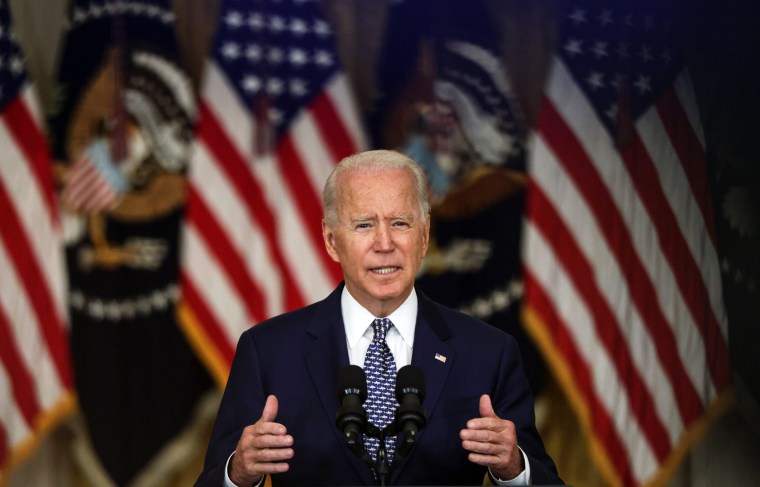A couple of months ago, the Wall Street Journal reported in passing that President Joe Biden, according to people close to him, has been influenced by the book How Democracies Die, by Harvard professors Steven Levitsky and Daniel Ziblatt, and the evidence to support the observation is abundant.
If you haven't read the book -- which, incidentally, I'd highly recommend -- the basic idea is that democracies, in recent generations, haven't generally collapsed at the hands of a military coup or an armed revolution. Rather, democracies break down gradually when public institutions and political norms are weakened from within.
With this in mind, Biden has commented frequently about the process of approving a bipartisan infrastructure bill, and he's repeatedly emphasized a single priority that has nothing to do with highways or broadband. For example, here was the president in late June, when the parties came together on a broad framework:
"[T]his agreement signals to the world that we can function, deliver, and do significant things.... [It] signals to ourselves and to the world that American democracy can deliver."
And here was Biden in late July, when bipartisan legislation finally took shape:
"This deal signals to the world that our democracy can function, deliver, and do big things."
And here's what he said this week, when the bill passed the Senate with ease:
"I know compromise is hard for both sides, but it's important -- it's important, it's necessary -- for a democracy to be able to function.... Today, we proved that democracy can still work."
In other words, as the infrastructure talks unfolded, both parties had a motivation tangential to the specific task at hand. For Republicans, it was protecting Trump-era tax breaks. GOP senators repeatedly said infrastructure investments seemed like a good idea, but tax breaks for the wealthy represented a "a non-negotiable red line" for the party.
But for Biden, there was an entirely different motivation: the president was practically preoccupied with proving to everyone, here and abroad, that the United States' system of government could function.
For now, the White House's legislative strategy remains on track, but the broader goal adds an unusual degree of pressure to the proceedings: if the infrastructure bills ultimately fall short, will it mean that democracy can't still work?

